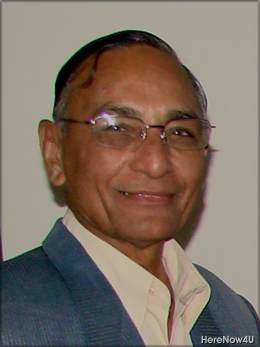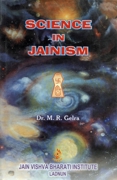
However, it should be kept in mind that Jains have taken into consideration the two categories of the numbers:
- Finite and Infinite
- Numerable and Innumerable
In our above discussions, the second category has not been employed. It may be treated separately.
According to the Jains, the universe is eternal. The universe has neither been created by God nor is there a beginning of space and time with the Big Bang or the end of space and time with the big crunch. Einstein once asked the question "How much choice did God have in constructing the universe?" Jainism is the only eastern ancient philosophy which does not accept God as a creator of the universe, but proposes that natural laws are responsible for the creation of matter from time to time in this universe. (Here we find a similarity in Jain philosophy and science).
In the creation of the universe, if time and space came into being only with Big-Bang, as the scientists propose, it does not provide a satisfactory answer to the question: what was there before the Big-Bang? Was there neither space nor time and are headed for a future when there would again be no space or time?. It is highly commendable that physicists are giving answers to these questions, which are related to the philosophers.
The great physicist Dr. Hawking tells us "All our theories of science are formulated on the assumption that space-time is smooth and nearly flat, so that they break down at the Big Bang singularity, where the curvature of space-time is infinite. This means that even if there were events before the Big Bang, one could not use them to determine what would happen afterward because predictability would break down at the Big Bang. Correspondingly, if as it is the case, we know only what has happened since the Big Bang, we could not determine what happened before hand. As far as we are concerned, events before the Big Bang can have no consequences. So they should not form part of a scientific model of the universe. We should therefore cut them out of the model."
Jain philosophy proposes the non-beginning and non-ending of the universe and explains time as a wheel moving in a clockwise direction and divided into cycles each of two equal parts. These cycles of time follow one after another in unbroken and unending succession indefinitely. After the end of the half cycle, a partial end of the world takes place. This partial end means that great landmasses submerge under water but that complete annihilation does not take place. The idea of Big Bang and the Jain concept of pralaya after the end of this half cycle do not have the same meaning, but some type of similarity does exist there.
Science has put forward several theories of how the universe may develop and end but no single theory has yet found complete acceptance, largely due to the theories being incompletely worked out. It is believed that the expansion of the sun or the cooling of the sun or the depletion of ozone layer may cause the destruction of the earth but according to the Jains, such destruction will always be partial in nature and the Universe will again develop and will remain endlessly.
 Dr. Mahavir Raj Gelra
Dr. Mahavir Raj Gelra

